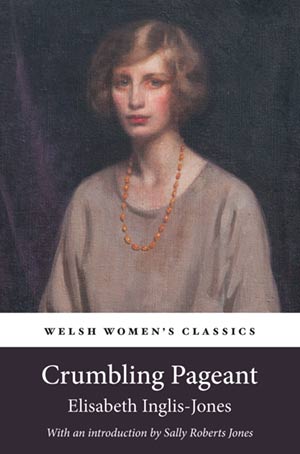Review: Crumbling Pageant From Planet 221

Jayne Bowden reviews
Crumbling Pageant
by Elisabeth Inglis-Jones

Honno, £8.99
There is much to discover in the forgotten depths of out-of-print Welsh women’s Anglophone writing, as the republished novels of writers such as Hilda Vaughan and Eiluned Lewis have illustrated. Elisabeth Inglis-Jones is another such writer whose work is now being introduced to a new audience by Honno, who have republished Crumbling Pageant as the latest title in its Welsh Women’s Classics series.
Crumbling Pageant, the second of nine books Inglis-Jones wrote over a career spanning some fifty years, was originally published in 1932 and is set in Ceredigion in 1846, when the Anglo-Welsh squirearchy was beginning to enter a period of decline. The novel begins by introducing Alice Lake, a ‘twittery little English governess’ who marries the Welshman Dr John Jones in a bid to avoid endless spinsterhood. Alice’s belief that she has married into a lower social class fuels a fierce social ambition that is inherited by the Jones’ daughter, Catherine. This propels Catherine through an unsettled adolescence where she develops a fixation on Morfa, a local mansion, which leads ultimately to marriage with Erasmus Morys, Morfa’s alcoholic owner.
Catherine’s obsession with holding on to Morfa greatly influences her behaviour towards the offspring of the unfortunate marriage, the twins Louise and Lucian. The gender roles within the squirearchy and the expectations attached to them are manifest in Catherine’s seeming cruelty towards her children. While Louise is happy hunting and fishing, the frail Lucian is far more comfortable in the library or admiring nature. Louise, we are told, is really the boy and Lucian the girl. For a woman determined to ensure her son’s birthright and see her daughter marry well, this role reversal is wholly unacceptable and results in Catherine’s hardheartedness plumbing new depths:
Sign in to read more